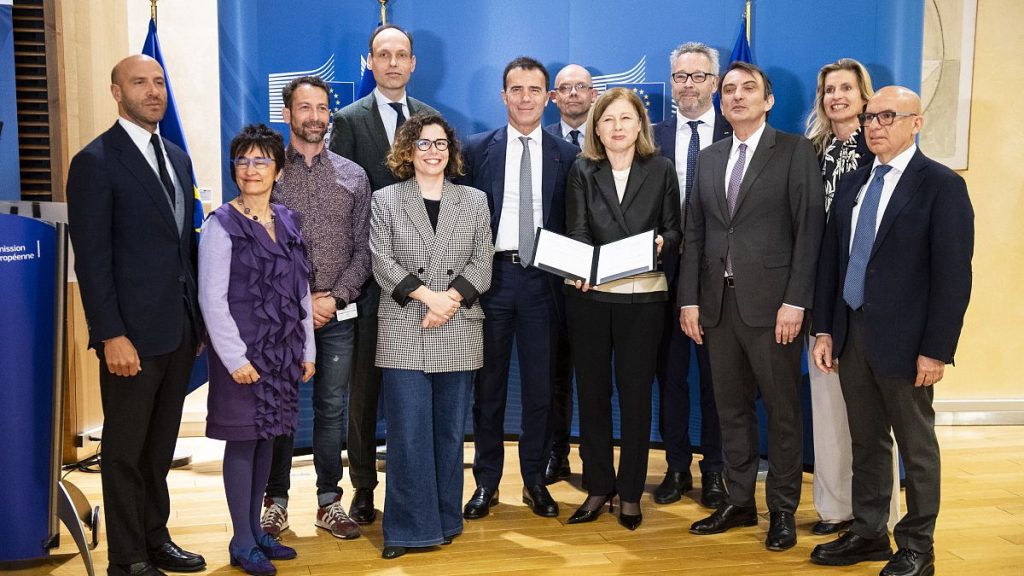The European Commission, under the leadership of Vice-President Věra Jourová, has introduced a code of conduct for the upcoming EU elections. This code is aimed at strengthening public confidence in the political institutions of Europe, which have been tainted by recent corruption scandals such as Qatargate and Russiagate. Jourová emphasizes the need for all tools to be used to combat the growing mistrust in Brussels, with a focus on preventing the dissemination of misleading content using artificial intelligence and avoiding political advertising sponsored by undisclosed interests. The goal is to maintain the integrity of the elections and restore faith in the European Parliament.
The signing of the code of conduct signifies a commitment by almost all political parties in Parliament to uphold certain ethical standards during the election period. The intention is to prevent hidden manipulations that could undermine the fairness of the elections and erode public confidence in the democratic process. By taking proactive measures to address the concerns of voters who feel disillusioned with the system, the European Commission aims to encourage participation and combat the perception that the system is corrupt. This initiative is seen as essential in light of the challenges posed by foreign interference in political affairs in recent years.
The European Commission acknowledges the importance of maintaining the integrity of the electoral process and ensuring that elections are free from undue influence and manipulation. By implementing a code of conduct that prohibits the use of misleading content and undisclosed political advertising, the Commission aims to safeguard the credibility of the European Parliament and prevent any attempts to undermine the democratic process. The focus is on rebuilding trust and restoring faith in the institutions of Europe, which have come under scrutiny following a series of corruption scandals.
While the far-right group Identity and Democracy has not signed the code of conduct, they have expressed their intention to join the initiative for the European elections. This move indicates a willingness by political parties across the spectrum to commit to ethical standards and uphold the integrity of the electoral process. By working together to combat misinformation and prevent foreign interference, parties aim to demonstrate their commitment to transparency and accountability in order to regain the trust of the electorate. This collective effort reflects a shared commitment to upholding democratic values and promoting fair and transparent elections.
In conclusion, the introduction of a code of conduct for the EU elections is a crucial step towards rebuilding public confidence in the political institutions of Europe. By addressing concerns about corruption and foreign interference, the European Commission aims to ensure that elections are conducted fairly and transparently. The commitment of political parties to upholding ethical standards and preventing the dissemination of misleading content demonstrates a collective effort to combat voter disillusionment and restore trust in the democratic process. This initiative marks a significant milestone in the ongoing efforts to strengthen the integrity of European elections and promote transparency in political affairs.


